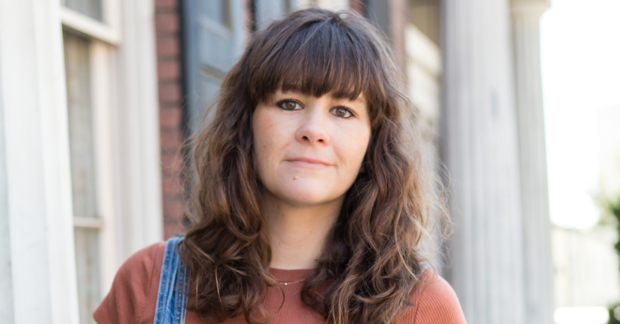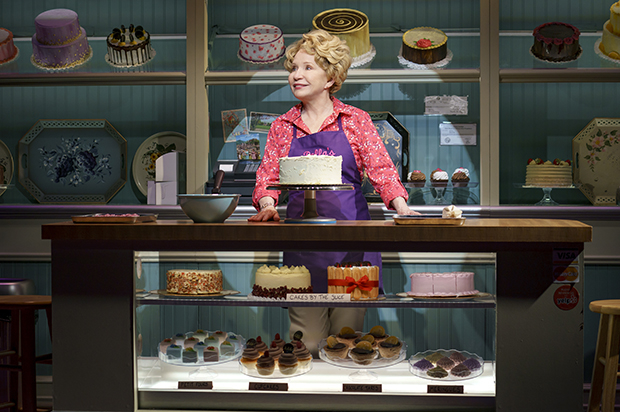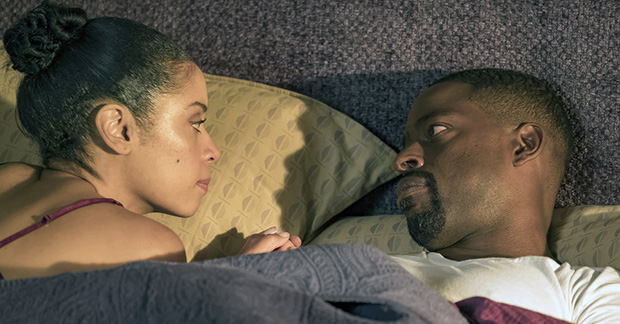This Is Us Writer Bekah Brunstetter Talks Bakers and Her Notebook Musical
Brunstetter winds down her tenure at one of the most popular shows on television and gets ready for a return to the stage with Manhattan Theatre Club’s ”The Cake”.
They say one door closes and another one opens. That’s doubly true for Bekah Brunstetter, who is winding down her three-season run as a writer and producer of NBC’s smash hit This Is Us and returning to her roots as a playwright.
A decade ago, Brunstetter debuted plays like Oorah!, about a North Carolina military family, and Be a Good Little Widow, in which a young woman learns how to grieve after the death of her husband. Now, she’s in the process of debuting two vastly different stage works: the ripped-from-the-headlines dramedy The Cake, currently receiving its New York premiere at Manhattan Theatre Club, and an upcoming musical adaptation of Nicholas Sparks’s The Notebook, with songs by Ingrid Michaelson.
In The Cake, Debra Jo Rupp (That ’70s Show) plays Della, a conservative North Carolina baker who must reconsider her long-held beliefs when her late best friend’s daughter asks her to bake a cake for her upcoming wedding to another woman. Coming from a conservative Winston-Salem family, Brunstetter knows characters like Della intimately. The play, she says, “is my attempt to understand myself and articulate things that had been confusing and frustrating me.” And while she once worried at some point that the topic might be dated, “Over the course of developing it, the play became more relevant than ever.”

(© Katie McGehee)
How much did the story of David Mullins and Charlie Craig, the plaintiffs in the Masterpiece Cakeshop case, inspire The Cake?
It’s become a bigger part of it, but when I was writing the very first script, I didn’t want to be influenced by it because I didn’t want it to be an adaptation. I knew I wanted it to be women instead of men, and I knew I wanted the baker to be a woman. In my years of working on the play, I’ve communicated with David and Charlie, and Charlie’s mother, and I followed the Supreme Court case very closely. It was being heard when we were in rehearsals at the Geffen [Playhouse in Los Angeles] last September.
What impressed me most was how much empathy the audience seemed to be feeling for the conservative baker, whose views couldn’t be further from many of our own. Why did you choose to focus the play around that character instead of the couple?
From the beginning, what I wanted to do was make somebody with her values be the protagonist, as opposed to the villain. In terms of empathy, it’s just how I feel about my own family. The challenge is translating my empathy for her to an audience, and also finding that fine line of having an audience empathize with her without condoning. Obviously, I don’t want the play to condone her values, but I’m just trying to give them some human context. That is a really scary thing to do, now especially. It’s a touchy issue for a lot of people because it’s linked to faith and a changing world and morality, a lot of things that are big and scary for a lot of people. The best I can do is try to show this person truthfully, without endorsing, because that’s also not what I intend to do. It’s a tricky situation I set up for myself, but if it were easy, it wouldn’t be fun.
Are you afraid of what the general reaction is going to be?
I’ve totally had moments where I’ve wondered if this is gonna blow up in my face. Here and there, I’ve absolutely gotten some understandably angry and frustrated responses to the play. “Why does this exist?” “Now is not the time to show empathy for these people.” I can’t discount that point of view. Hopefully, it’s clear why I’m doing this. I’m just entering it as a person with questions and a heart, and I think that that comes across. I had to take that risk, and in taking that risk, I’m exposing myself to difficult conversations.

(© Joan Marcus)
You’re also working on a musical version of The Notebook with Ingrid Michaelson. Where are you in the process?
I don’t know how much I’m allowed to say about it, but I can be delightfully vague. [laughs] We’ve got some songs, we’ve got some scenes, and we have a shape. We want to tell a really universal love story that is equal parts funny, real, and sad, which is where I love to be any time I sit down to write anything. Ingrid has written some of the most incredible musical-theater songs I’ve ever heard, and they just kind of erupted from her pretty quickly. She’s just so connected to the material.
You wrote an upcoming episode of This Is Us that the show’s creator, Dan Fogelman, is already discussing in interviews and on social media. Can you give us a preview?
I probably can’t say too much about that, either! Dan had an idea to do an episode that was basically like a play, with all the characters in one space with pretty much uninterrupted action. I was up to bat and they were like, “Let’s have the playwright do it.” So I was able to go away and be a playwright for a few days and not think about three storylines interweaving. Sterling K. Brown and Susan Kelechi Watson and Chris Sullivan are theater actors, so writing and producing it felt like doing a play. It was awesome. I’m actually moving on from the show after this season, and The Cake is weirdly the beginning of this next chapter.

(© Ron Batzdorff/NBC)








